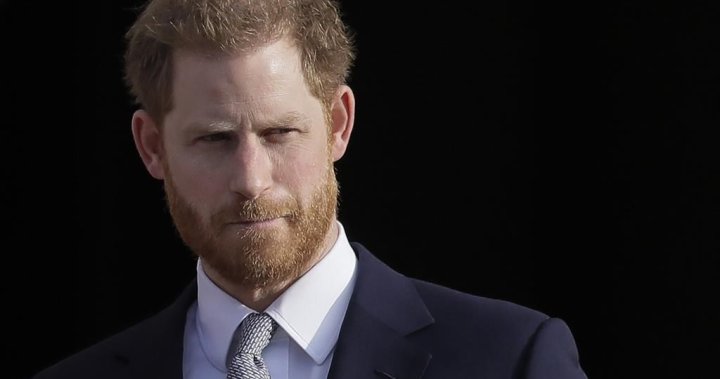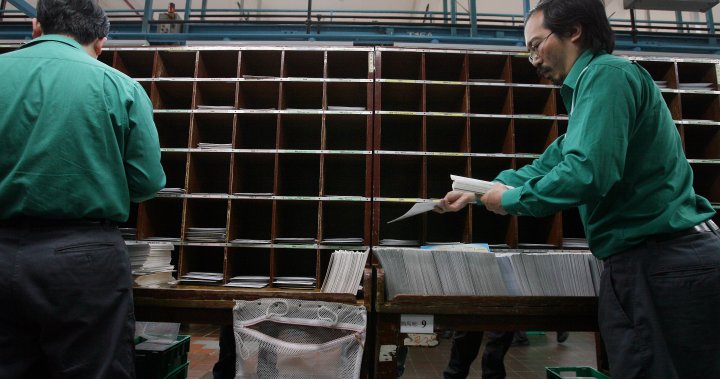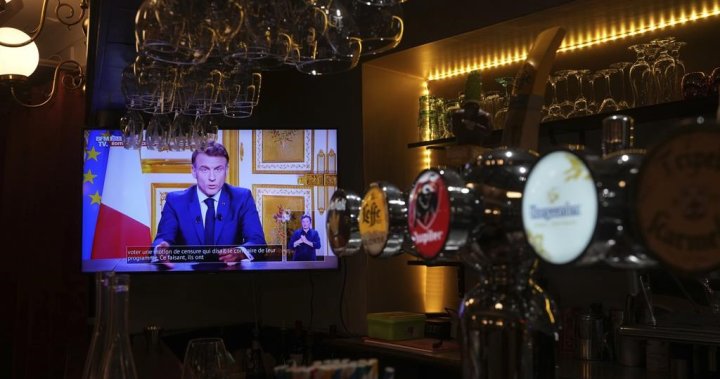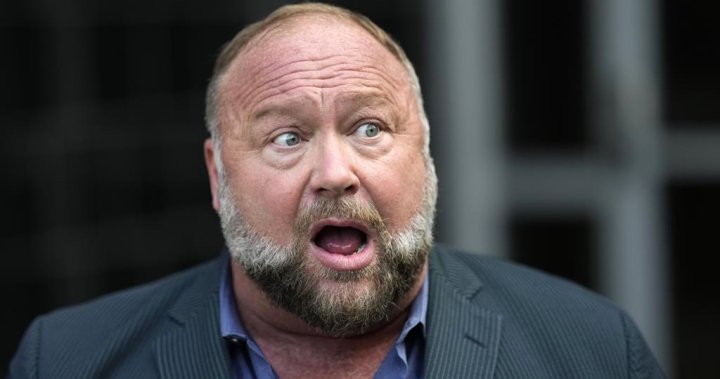French President Emmanuel Macron pledged on Thursday to remain in office until the end of his scheduled term in 2027, and announced that he would appoint a new prime minister within days in an attempt to overcome the political deadlock after the resignation of ousted Prime Minister Michel Barnier.
Macron came out fighting a day after a historic vote of no confidence over budget disagreements in the National Assembly, leaving France without a functioning government. He blamed his opponents on the far right for bringing down Barnier’s government.
“They chose chaos,” he said.
The president said that the far right and the far left had united in what he called an “anti-Republican front,” and stressed: “I will not tolerate the irresponsibility of others.”
He said he would appoint a new prime minister within days, but did not give any hints about who that president would be.
Story continues below ad
Earlier in the day, Macron “took note” of Barnier’s resignation after just three months in office – the shortest term of any prime minister in modern French history.
Macron acknowledges his responsibility
Despite his criticism of his political opponents, Macron also acknowledged what he described as his responsibility for the chaos that is now shaking French politics and worrying financial markets.
He reconsidered his decision taken in June to dissolve Parliament. This precipitated the crisis, triggering legislative elections that produced a now hung parliament, divided between three minority blocs that did not have enough seats to govern on their own.
“I realize that this decision was not understood. Many criticized me for that,” Macron said. However, he said, “I think it was necessary” to let French voters speak.

The French national elections achieve a surprising result
The next priority is to approve the budget law
Macron said that the new prime minister “will be charged with forming a government in the public interest.”
Story continues below ad
He stressed that a special law will be introduced by mid-December to enable the state to impose taxes from January 1, based on this year’s rules, and avoid a lockdown.

Get daily national news
Get the day’s top political, economic and current affairs news, headlines, delivered to your inbox once a day.
“Public services will be ready to operate, and businesses will be able to operate,” he said.
Macron said the new government would then prepare a budget law for 2025, which would allow France to invest as planned in its army, judiciary and police – as well as to support struggling farmers.
How to achieve the “impossible”
In addition to the domestic political and financial difficulties it faces – not least France’s ballooning debt levels – Macron noted that the country faces multiple international challenges, citing the wars in Ukraine and the Middle East.
He looked to the Paris Olympics in July and August and ahead of the reopening of Notre Dame Cathedral this weekend, saying France could emerge from this latest political crisis if it decided to.
Story continues below ad
“It is proof that we know how to do great things, and that we know how to achieve the impossible,” he said.
“The world has admired us twice this year,” he said, referring to hosting the Olympics and the restoration of Notre Dame. “Well, for the sake of the nation, we must do the same.”
Macron faces the crucial task of naming a replacement for Barnier capable of leading a minority government in a parliament where no party has a majority. Yael Braun-Bivet, president of the National Assembly and a member of Macron’s party, urged the president to act quickly.
On Thursday, Brown-Bevit told France Inter radio: “I recommend that he make a quick decision on a new prime minister.” “There should be no political hesitation. We need a leader who can talk to everyone and work to pass a new budget bill.”
Story continues below ad
The process may be difficult. French media published a shortlist of centrist candidates who might appeal to both ends of the political spectrum.
Trending now
-

These parts of Canada could see a warmer winter. What about snow?
-

Canada Post strike is ‘huge disrespect for Canadians’: Minister
Macron demands to step down
The vote of no confidence galvanized opposition leaders, with some openly calling for Macron’s resignation.
“I believe that stability requires the departure of the president of the republic,” Manuel Bompard, leader of the far-left France Untethered party, told BFM on Wednesday night.

Macron appoints a new French Prime Minister
The leader of the far-right National Rally, Marine Le Pen, whose party holds the largest number of seats in the Assembly, stopped short of calling for Macron’s resignation, but warned that “the pressure on the President of the Republic will become stronger and stronger.”
Story continues below ad
The French constitution does not call for the president’s resignation after the National Assembly overthrew his government. It also says new legislative elections cannot be held until at least July, creating a potential stalemate for policymakers.
Economic uncertainty looms on the horizon
Political instability has exacerbated concerns about the French economy, especially its debt, which could rise to 7% of GDP next year without major reforms.
Analysts say the fall of Barnier’s government could lead to French interest rates rising, increasing debt further.
Ratings agency Moody’s warned late Wednesday that the government’s fall “reduces the likelihood of fiscal consolidation” and worsens political gridlock.
The teachers’ protest takes on a political tone
A planned protest by teachers against education budget cuts took on a new tone Thursday, as demonstrators in Paris linked their demands to the political crisis.
Story continues below ad
“Macron resigns!” read a sign carried by Dylan Quinon, a 28-year-old teacher at a middle school in Aubervilliers, north of Paris.
Quinon said Macron bears responsibility for what he described as the dismantling of public services such as schools. “The only way to change that is to remove him from office,” he added.
The demonstrators expressed little hope that Macron’s appointee would reverse course.
“I’m happy this government falls, but it could lead to something worse,” said Elise de la Gorse, a 33-year-old teacher in Staines, north of Paris.

















